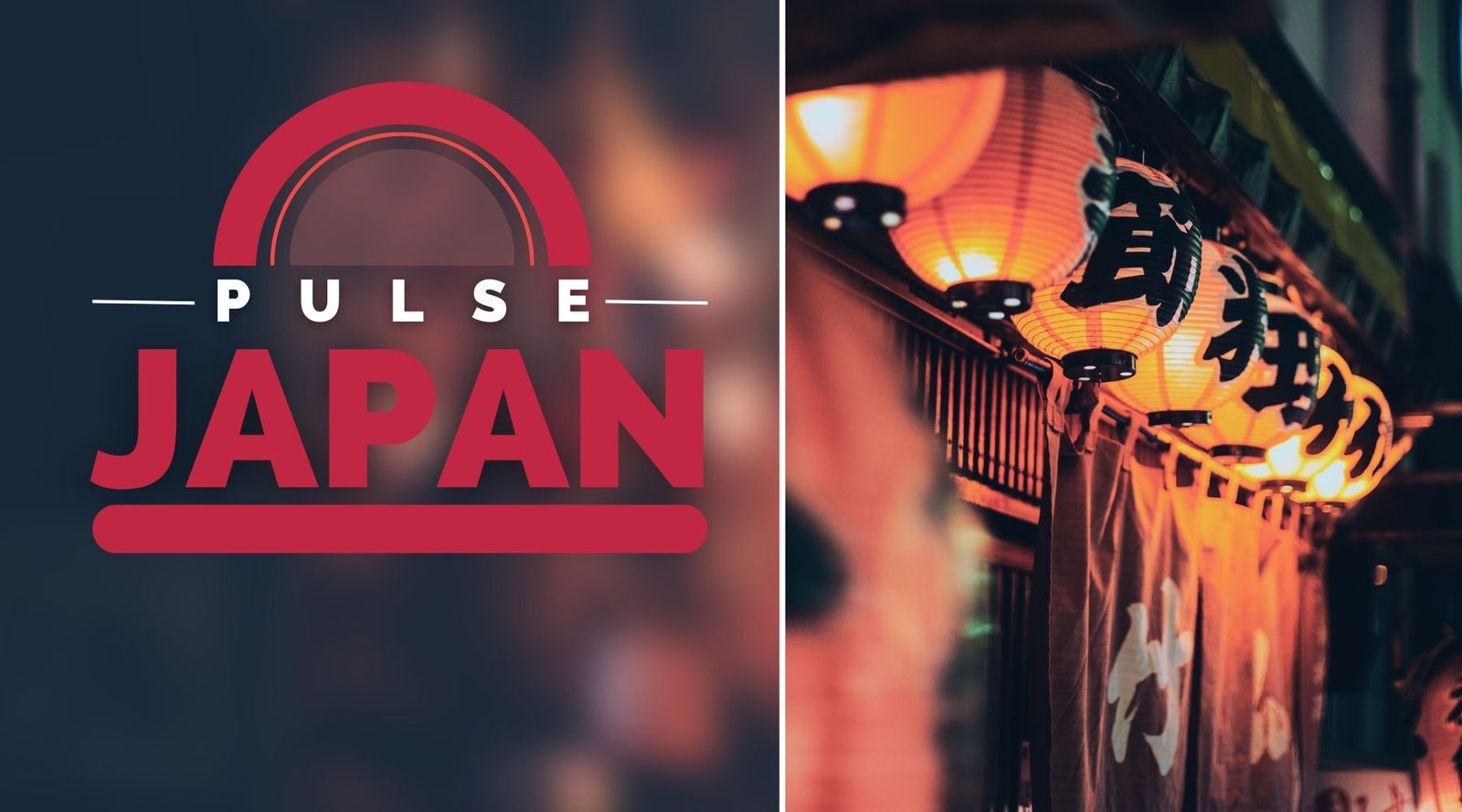Stay Safe during Earthquakes in Japan with These Essential Tips

Earthquakes are a formidable force of nature, capable of altering landscapes and lives within moments. Japan, with its unique geographical location along the Pacific Ring of Fire, is no stranger to the tremors and shakes of the Earth. The country has developed a profound understanding and respect for these seismic events, integrating advanced technology and cultural preparedness into the fabric of daily life. To stay safe during earthquakes in Japan, one must embrace a blend of historical wisdom and modern innovation.
The essential tips that follow are distilled from Japan's extensive experience with earthquakes, offering guidance on how to navigate these natural phenomena with caution and awareness. Whether you're a resident or a visitor in this beautiful yet earthquake-prone nation, these strategies can be lifesavers, helping you to remain secure when the ground beneath you starts to sway.
Understanding Earthquakes in Japan
Have you ever wondered why Japan experiences so many earthquakes? It's a question that piques the curiosity of many, especially those planning to visit this culturally rich nation. Let's dive into the seismic activity that characterizes Japan and understand its roots.
Earthquake Prevalence in Japan and the Geological Reasons Behind It
Japan's geographical positioning is the key to understanding its frequent encounters with earthquakes. The country sits atop four tectonic plates: the Pacific, North American, Eurasian, and Philippine Sea plates. These immense slabs of the earth's crust constantly grind against each other, leading to a phenomenon known as subduction, where one plate slips under another.
This tectonic activity is the primary cause of the seismic events experienced in the region. For instance, a recent 7.6 magnitude earthquake affected areas like Ishikawa, Niigata, and Fukui prefectures, as reported by Indian Express, showcasing the power of these natural occurrences.
Historical Earthquakes in Japan and Their Impact on Society
Japan's history is punctuated by devastating earthquakes that have had profound impacts on society. From the Great Kanto earthquake in 1923 to the more recent 2011 Tohoku earthquake and tsunami, these events have reshaped cities, influenced building codes, and transformed how the nation prepares for natural disasters.
The societal response to these tragedies has been remarkable, with an emphasis on resilience and community support. Moreover, the cultural fabric of Japan has woven these experiences into a collective consciousness that prioritizes preparedness and safety.
The Importance of Being Informed About Earthquake Risks When Traveling to Japan
When traveling to Japan, staying informed about earthquake risks is crucial. Understanding local safety measures can be life-saving. For example, using a bag or backpack to protect your head and neck during an earthquake is a simple yet effective strategy highlighted by The Japan Times.
Awareness of such practices, along with knowledge of local emergency procedures, can greatly enhance your safety. It's not just about personal well-being; being informed also means you're less likely to contribute to chaos during an emergency, aiding in efficient rescue and relief operations.
By considering these points, we can appreciate the importance of understanding earthquakes in Japan, both from a geological perspective and their societal implications. This knowledge is not only fascinating but also essential for anyone visiting or living in this dynamic country. Now, let's continue our journey towards preparedness by discussing the essential preparations one must make for earthquakes.
Essential Preparations for Earthquakes
With Japan's position atop converging tectonic plates, earthquakes are a part of life. So, what can you do to prepare? Let's delve into the essential steps one should take to ensure safety and readiness in the event of an earthquake.
Downloading Earthquake Early Warning Apps for Smartphones
In an age where our smartphones are almost always within arm’s reach, they can be a vital tool in our earthquake preparedness kit. Japan has an early warning system that sends alerts to mobile devices before the shaking starts.
These precious seconds can give you time to move to a safer place. Ensure your phone is equipped with apps like Yurekuru Call or Japan's official Safety Tips, which provide not only warnings but also valuable information about what to do in case of an earthquake. Staying updated could mean staying safe.
Preparing Emergency Kits With Essentials
You never know when an earthquake will strike, so having an emergency kit ready is crucial. This kit should include basics like water, non-perishable food, a first-aid kit, flashlights with extra batteries, and any necessary medication. It's also wise to include personal documents, some cash, and a list of emergency contacts. A well-prepared kit can sustain you and your loved ones until help arrives or until it’s safe to venture out for supplies. Japanese department stores often sell pre-assembled kits, but tailoring one to your specific needs can be even more effective.
Having a Communication Plan and Knowing Emergency Procedures
Communication can become challenging during disasters. Having a plan to contact family members and friends is essential. Decide on a meeting place in case you're separated and choose an out-of-town contact who can relay messages if local lines are busy or down. It's equally important to familiarize yourself with the emergency procedures of the place you're staying in Japan. Know the evacuation routes and safe spots in your accommodation or neighborhood. Don't forget to register with your embassy upon arrival in Japan, as advised by tokhimo.com, so they can assist you in an emergency.
By understanding the risks and taking these key steps towards preparedness, you empower yourself to face earthquakes with calm and confidence. While we cannot prevent natural disasters, we can certainly prepare for them and mitigate their impacts on our lives.
Reacting During an Earthquake
When the ground starts shaking, your actions in the next few seconds can be critical to ensuring your safety. Let's delve into what you should do during an earthquake, especially if you find yourself in Japan where these events are not uncommon.
Demonstrating the 'Drop, Cover, and Hold' Technique for Earthquake Safety
Imagine the earth begins to quiver beneath your feet. Your immediate response should be the 'Drop, Cover, and Hold' technique, a globally recognized safety protocol during seismic activities. First, Drop down onto your hands and knees; this position prevents you from being knocked over by the tremors. Next, Cover your head and neck with your arms and seek shelter under a sturdy piece of furniture, such as a table or desk. If no shelter is available, use anything at your disposal, like a bag or backpack, to shield these vital areas. Lastly, Hold onto your shelter, or continue to protect your head and neck, until the shaking ceases. This method is essential in minimizing injuries from falling debris or being thrown around by the force of an earthquake.
Highlighting the Importance of Staying Indoors During an Earthquake
While your instinct may be to flee outdoors, it's often safer to remain inside until the shaking stops. Buildings in Japan are engineered to withstand seismic forces, and venturing outside could expose you to greater risks from falling debris, glass, or signage. Avoid standing near windows that could shatter or areas with heavy objects that could topple. Never use elevators during or immediately after a tremor, as they may become inoperative or dangerous. Instead, wait for the shaking to subside before carefully exiting the building, if necessary, using the stairs.
Providing Guidance on Actions to Take If Caught Outside During an Earthquake
If you're caught outside when an earthquake strikes, move away from buildings, trees, and utility wires to prevent injury from falling objects. Open spaces like parks are generally safer. In urban areas, however, such spaces may not be immediately accessible, so do your best to find a clear spot and use your personal items to shield your head and neck. If you're in a vehicle, pull over to a safe place away from potential hazards like overpasses and power lines. Stay inside your car with the seatbelt fastened until the shaking stops, listening to emergency broadcasts for updates. Remember to keep your car doors unlocked and keys in the ignition to aid rescue efforts if needed.
By understanding and applying these crucial steps—'Drop, Cover, and Hold,' staying indoors, and following specific outdoor guidelines—you can significantly increase your chances of staying safe during an earthquake. As we've discussed in previous sections, preparedness is key; knowing how to react when the earth shakes is an integral part of that readiness.
Navigating Post-Earthquake Situations in Japan
Once the ground has stilled and the immediacy of an earthquake's shakes have passed, you may find yourself in a changed landscape. It's at this moment that understanding the potential risk of tsunamis, particularly after coastal earthquakes, becomes crucial. Tsunamis are large, powerful waves caused by seismic activity on the ocean floor, and Japan's coastline can be particularly vulnerable to these natural disasters. The country has a robust early warning system, so heed any tsunami alerts on your mobile device or local broadcasts immediately and follow designated evacuation routes.
Following the Lead of Locals and Authorities
After an earthquake, it's imperative to take cues from those around you. Locals, well-versed in their country's seismic activity, can be barometers for appropriate action. Similarly, authorities are trained for these scenarios and will provide valuable guidance. Whether you're navigating the streets or seeking shelter, look for and adhere to instructions from local emergency services, and if possible, join community gatherings where information is shared and efforts are coordinated.
Preparing for Power Outages and Limited Access to Resources
In the aftermath of an earthquake, one of the immediate concerns is the loss of utilities. Power outages are common, which can disrupt communication lines and leave areas without light or heat. Prepare for this possibility by keeping a flashlight, extra batteries, and a portable charger handy. Likewise, access to food and water may be compromised. Having an emergency kit with non-perishable items, bottled water, and basic medical supplies will ensure you have the essentials during this critical time. Remember that cash machines and electronic payment systems may not function, so having a small amount of cash is also advisable.
As you navigate through the post-earthquake environment, remember to stay calm, stay informed, and stay prepared. By understanding the risks, following the lead of those with experience, and preparing for disruptions, you can better ensure your safety and well-being in Japan following an earthquake.
Cultural Context and Additional Safety Tips for Travelers
When visiting Japan, it's not just the beauty of cherry blossoms or the buzz of Tokyo's streets that captures the heart; it's also the resilience and preparedness of its people against natural disasters like earthquakes. Understanding cultural norms and local practices related to earthquake safety is a vital part of immersing yourself in Japanese life.
Understanding Cultural Norms and Local Practices
Japan's history with earthquakes has ingrained a culture of readiness that is evident in various aspects of daily life. Buildings are designed with strict seismic standards, and regular drills are conducted in schools and workplaces. As a traveler, it's important to take cues from locals. For instance, if an earthquake occurs, observe how the Japanese people calmly respond and seek shelter. Their actions are informed by a lifetime of education on the subject, and following their lead can be a wise choice.
Addressing Specific Concerns for Travelers
Travelers might face language barriers and unfamiliarity with local infrastructure. It's essential to learn a few key phrases in Japanese, such as "Jishin desu" (It's an earthquake), "Doko ni shelter ga arimasu ka?" (Where is the shelter?), and "Tasukete kudasai" (Please help me). Additionally, familiarizing yourself with the layout of your accommodation and nearby safe spots can be lifesaving. The Japan National Tourism Organization offers valuable resources in multiple languages to help you navigate during emergencies.
-
Learn key Japanese phrases related to emergencies.
-
Familiarize yourself with your accommodation's emergency exits and nearby shelters.
Emphasizing the Importance of Adaptability and Respect for Local Guidance
In times of crisis, being adaptable and respecting local guidance is crucial. Japan's early warning system can give precious seconds to react before the shaking starts, so make sure your mobile phone is set up to receive these alerts. Remember, during a quake, protecting your head and neck is paramount, and if you're outside, be mindful of falling debris. Above all, stay informed, stay calm, and follow the instructions of local authorities who have experience dealing with such situations.
-
Set up your mobile phone to receive earthquake early warnings.
-
Stay calm and follow the lead of local authorities during an emergency.
-
Protect your head and neck from falling debris if outside.
By understanding and integrating into Japan's culture of preparedness, respecting the local ways of managing earthquakes, and staying adaptable, travelers can significantly improve their safety during their stay. While Japan is a country that experiences frequent seismic activity, it is also one of the most equipped to handle such events. With these tips in mind, you can embrace your journey in Japan with confidence and peace of mind.


































Dejar un comentario